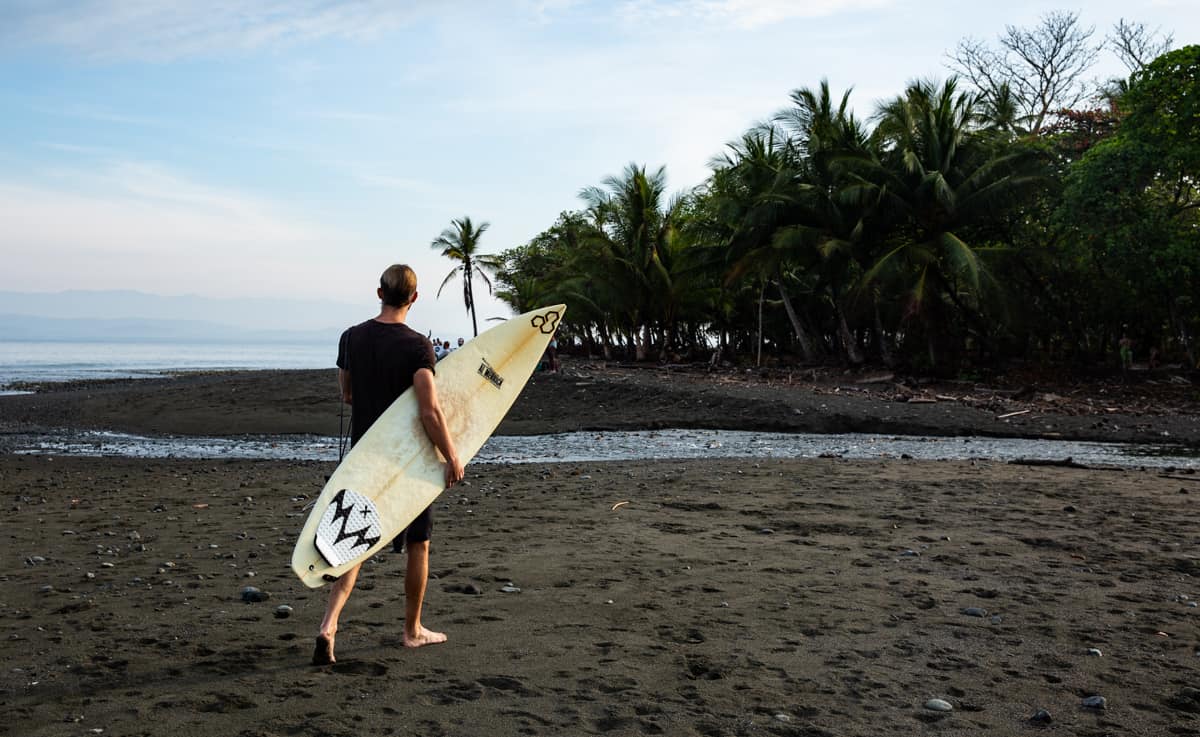In Pavones, a quiet surfing haven in Golfito, Puntarenas, recent evictions have stirred tension between residents and the local municipality. The conflict centers on properties built within the maritime-terrestrial zone (ZMT), a 200-meter coastal strip regulated by Costa Rica’s 1977 Maritime Zoning Law. The municipality claims these buildings encroach on public land, but locals argue the evictions are unfair and legally shaky.
On Monday, authorities demolished a local supermarket, Los Delfines, marking the first of several planned removals. The municipality says the targeted structures, including three buildings and some live fences, sit on public domain land within the ZMT’s first 50 meters, which is strictly off-limits for private use. The next 150 meters, known as the restricted zone, can be leased through concessions, but Mayor Freiner Lara clarified that none of the affected residents hold valid concessions—only pending applications, which grant no legal rights.
Wálter Brenes, a lawyer representing the evicted families, calls the municipality’s actions questionable. He argues the evictions rely on road plans drawn up 20 years ago that don’t reflect the actual streets used by Pavones’ residents for decades. “Many of these families settled here 70 years ago, building homes and businesses that sustain the community,” Brenes said. He also claims the municipality’s topographic surveys are inaccurate, potentially opening the door to criminal liability.
The dispute isn’t new. Tensions flared in March when the municipality first attempted demolitions, only to be halted by community protests organized by the Pavones Community Development Association. This week, residents held a vigil before the demolition of Los Delfines but scattered when police arrived. The evictions have fueled anger, with many taking to social media to criticize the municipality. Some residents feel local families are being unfairly targeted while foreign-owned businesses in the ZMT face less scrutiny. “They’re kicking out Ticos to clear space for outsiders,” one user posted online.
Pavones, known for its world-class surf break, sits in a remote corner of Costa Rica’s Pacific coast, about 370 km from San José. Its natural beauty and laid-back vibe draw surfers and tourists, but the ZMT law aims to keep coastal areas accessible to the public and protect ecosystems. The law designates the first 50 meters from the high-tide line as public land, while the restricted zone requires municipal approval for development. Disputes like this one often arise when historical land use clashes with modern regulations.
Mayor Lara denies accusations of widespread evictions, emphasizing that only specific structures violating the ZMT are being addressed. “This isn’t about clearing out Pavones,” he said in a statement. “We’re ensuring public land stays public.” Still, the evictions have raised questions about fairness and transparency in how the municipality enforces ZMT rules.
Similar cases have popped up across Costa Rica. In February, Cabuyal Beach residents successfully fought ZMT violations through a landmark legal ruling, preserving public access to their coast. Pavones’ case could follow a similar path if Brenes’ legal challenge gains traction. For now, the community remains on edge, awaiting clarity on whether more demolitions are coming.
The debate in Pavones highlights a broader issue: balancing development, tourism, and the rights of long-time residents in Costa Rica’s coastal zones. As the municipality and residents head toward a legal showdown, the outcome could set a precedent for how ZMT disputes are handled nationwide. For Pavones’ families, it’s not just about land—it’s about their history and way of life.






